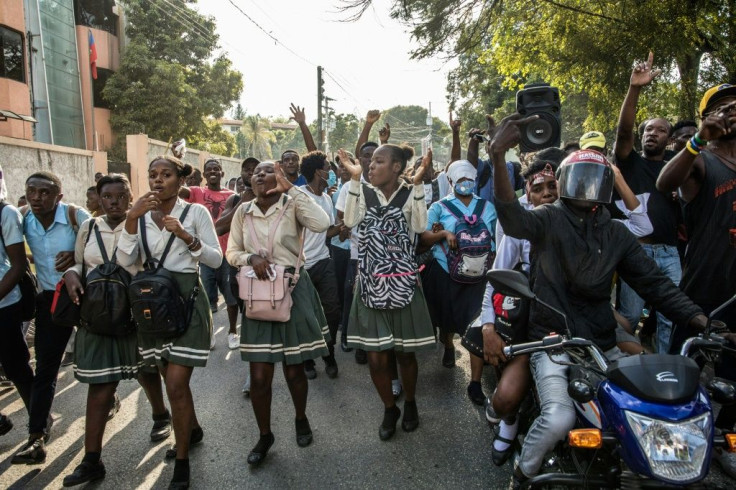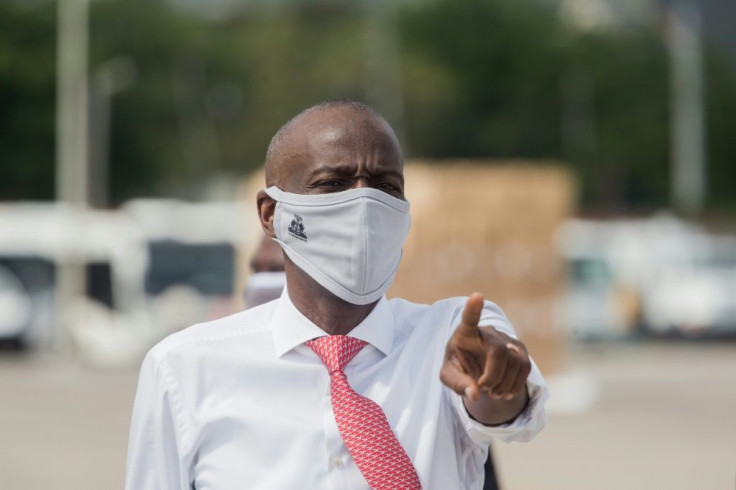Haitian Opposition Derides US In Dispute Over President's Term
Haitian civil society and opposition leaders called on the United States Saturday to respect the island nation's sovereignty after the US State Department sided with the president's view that his term in power ends in a year, and not on Sunday as his critics assert.
"This statement has no political importance. It is perhaps a maneuver aimed at shutting down grassroots mobilization" against President Jovenel Moise, said Andre Michel, an opposition leader.

Moise has been governing without any checks on his power for the past year and says he remains president until February 7, 2022 -- in an interpretation of the constitution rejected by the opposition, which has led protests asserting his term ends Sunday.
US State Department spokesman Ned Price said Friday that the United States wants Haiti to organize free and fair legislative elections so that "parliament may resume its rightful role."

But he added that, in line with the position of the Organization of American States, the United States believes that "a new elected president should succeed President Moise when his term ends on February 7, 2022."
The dispute over when the president's term ends stems from Moise's original election: he was voted into office in a poll later cancelled on grounds of fraud, and then elected again a year later, in 2016.

After the latter disputed election, demonstrations demanding his resignation intensified in the summer of 2018.
Voting to elect deputies, senators, mayors and local officials should have been held in 2018, but the polls have been delayed, triggering the vacuum in which Moise says he is entitled to stay for another year.
In recent years, angry Haitians have demonstrated against what they call rampant government corruption and unchecked crime by gangs.
"Instead of siding with democracy, the United States had nothing to say when the elections were not held on time," said Marie-Rosy Auguste Ducena of the National Human Rights Network.
In a letter Friday to the UN mission in Haiti, a dozen or so human rights and women's advocacy groups faulted it for providing technical and logistical support for the president's plans to hold a constitutional reform referendum in April, then presidential and legislative elections later in the year.
"The United Nations must under no circumstances support President Jovenel Moise in his anti-democratic plans," the letter stated.
© Copyright AFP 2024. All rights reserved.











